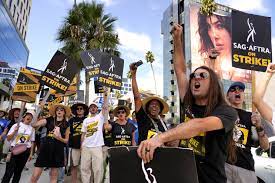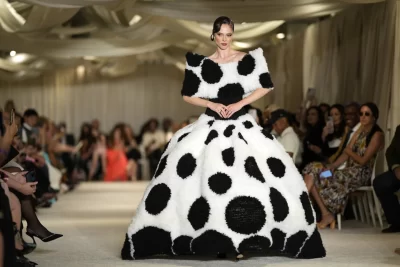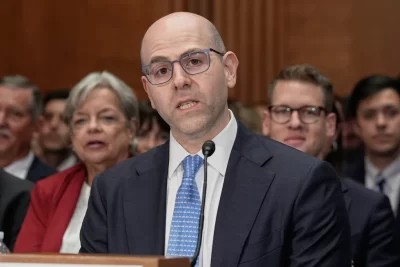
Hollywood’s TV and film actors have been striking for 100 days now, and there’s no end in sight.
The strike began July 14 at what should have been a celebratory time for many performers and the industry. Nominations for the Emmy Awards had just been announced, heaping praise on shows like “Succession,” “The Last of Us” and “The White Lotus.” The #Barbenheimer craze was in full swing and poised to set the box office on fire, giving another jolt to still-recovering movie theaters.
While the writers strike — declared more than two months before — had slowed the industry, it immediately ground to a halt with a fiery speech from actors guild President Fran Drescher. Actors joined writers on the picket lines for the first dual strike in more than 60 years.
Work on new seasons of shows like “Abbott Elementary” and shooting on films like “Deadpool 3” stopped. Outside studio offices in California and New York, and at filming hubs around the country, actors have picketed, rallied and called on entertainment companies to share in a bigger share of streaming successes and give them protections from the use of artificial intelligence.
Premieres were canceled, or featured only directors — some of whom found creative ways to spotlight the actors missing their moment. The actors whose work got guild permission to promote projects used their voices and clothing to show support for the strike.
Cast reunions — like Bryan Cranston, Aaron Paul and other “Breaking Bad” actors — melded fans’ affection for shows and their stars to the actors’ demands.
September came and went with muted fall film festivals and no Emmy Awards, which moved to January.
Last month’s deal between screenwriters and the studios and streaming giants led to hope that actors would reach an agreement too. Those hopes were dashed earlier this month when negotiations broke down, leaving awards season in flux.
So for now, the picket signs will stay out, and actors the will remain on sidewalks instead of sets.





